Alumni Spotlight: Denise Reid: Double Husky, and A Collector of ‘Firsts’
A “Double Husky” is someone who attains more than one degree at Northeastern University.
In Denise Reid’s case, as the ‘Double Husky’ Associate Director of Communications, Social Media, and Brand Management for the College of Professional Studies (CPS), she helps the college understand the value of the online community. And she understands our mission, from more than one perspective.
In the last decade, Reid has applied her unique life experience to strategic action for Northeastern University on the digital front. She graduated with an MBA from D’Amore Mckim School of Business while working full-time to build and manage the university’s social media platforms. She grew these platforms to valuable size, and she continues to build on these strengths.
Reid was born in Boston and raised by her parents, Dwayne and Bridgette, both Jamaican immigrants. When she was just ten years old, her father was deported after being racially profiled and harassed by a client who hired his livery service. The entire family was forced to return to Jamaica, where Reid continued her education at a private school. She said, “My parents weren’t wealthy, but they always prioritized education for their kids.”
Five years later, at 15 years old, Reid was sent back to Boston by her parents to attend high school. She said,
“They thought it was best to send me back and my mom was like ‘You need to go to college’. While she didn’t go herself, she knew the value of it [education].”
She moved in with her grandparents who resided in Dorchester, and she attended Boston Public School (BPS). Her re-emigration was a difficult transition. “I live between two different worlds. I’m Jamaican but was born here. So, the Jamaicans are like ‘You’re not Jamaican’ and I’m like ‘but I am.’ Then I move back to the States and the Americans are like ‘You’re not American’ and I’m like ‘But I am’.”
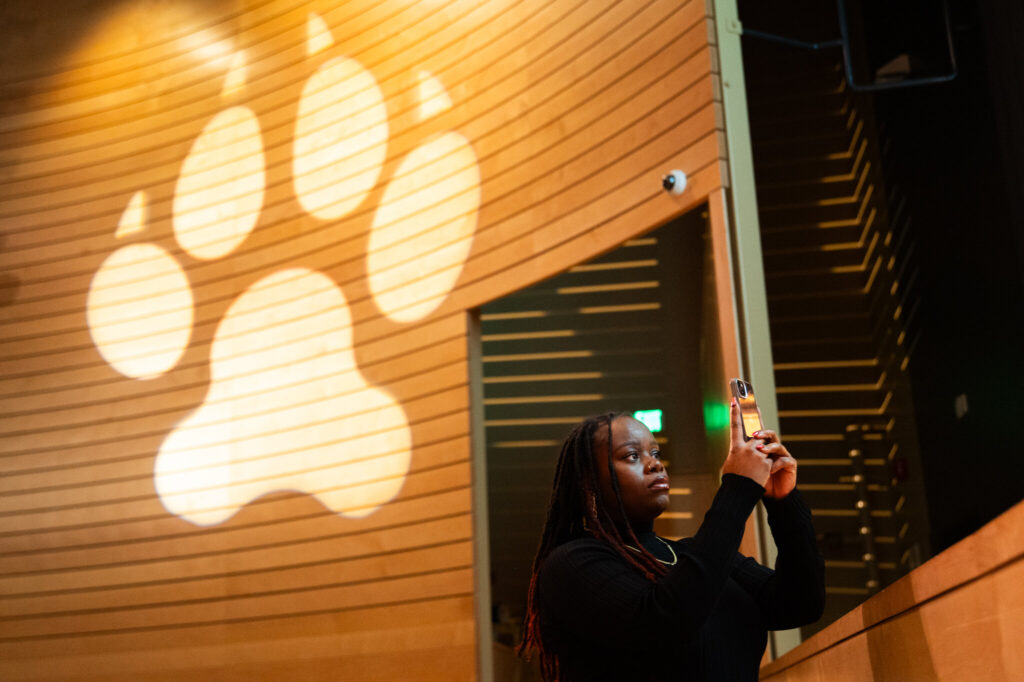
While at BPS, Reid experienced a curriculum that was less rigorous than it was in Jamaica, and she soon found herself enrolled in advanced placement (AP) classes for the duration of her high school years. She said, “By my senior year, I attended [a prominent Boston-based university] through a partnership program that my principal championed. I received college credit for English 101 and English 102 courses and every day, we were allowed to leave school at BPS to attend class on university campus and this experience gave me a window into college and for the first time.” she said.
During this time, Reid experienced another ‘first’. “Unfortunately, my time in the partnership program also gave me a window into the world of ‘microaggressions’. Some of the professors treated us differently, and it was the first time I really felt marginalized.” Reid describes professors assigning books about poor inner-city circumstances and then expecting the teens to relate to its subject matter directly.
“They would intensely ask, ‘How do you feel when you read stuff like this?’ I’m looking at this professor like ‘I didn’t realize that you thought I was poor!’ It was the first time I felt that a narrative was being pushed on me from the outside. And then I started to wonder, ‘Is this really how the world sees me, or am I just being painted this way?’” Reid says that this experience also prepared her with expectations of going to a predominantly white institution as a Black student. She said, “I realized I needed to learn how to navigate that.”
So I started to take responsibility over my own narrative because I didn’t want people to place that on my authentic identity. If you’re going to know me, you will learn that from me and not what you think you learned from TV or wherever
DENISE REID
Reid said, “This was the first time I could identify with my father’s struggle because he came to the U.S. as a ‘whole citizen’ earning a living as a cab driver and one encounter with a customer led to him having to defend himself in an environment where they essentially forced him to plead guilty to charges that ultimately got him deported.” She said, “They were forcing my dad to be a person he wasn’t, and in my classroom as a high schooler, some painted me to be who they thought I was, and that was the first time I realized all of this.”
After graduating high school, Reid applied to a program called ‘Bottom Line’ which provides college counseling for inner-city youth. The program identified and secured scholarships that paid the way for Reid’s first year at St. Johns University in Queens, New York. But she failed to secure funding for the second year. “It was a diverse college and I loved being immersed in all the cultures,” she said.
Without the ability to pay after that second year, Reid returned to Boston in 2010 and began working in retail at places like Forever 21 and H&M – and she felt depressed. Resolved to resume her education, she soon enrolled at Bunker Hill Community College in Boston. “I decided to just take one class,” she said.
That one class turned into two, then three.
Introduction to Northeastern
In 2011, a friend who worked at the Northeastern Office of Student Employment called to see if Reid wanted to work a summer job in that department. She jumped at the chance. The office’s executive assistant went on maternity leave and that provided Reid the opportunity to extend her employment there. While in that role, two things happened: a large digital media project presented itself and they asked Reid to work on it, and the former executive assistant did not return from her second maternity leave of absence. At 19, Reid landed her first full-time job working on digital media strategy at Northeastern.
That’s when Reid enrolled in the Organizational Communication bachelor’s program at CPS, made possible by the program’s evening course schedule. She recalls, “Balancing a full-time job with studying didn’t really give me the full experience of being a college student; I was able to do a couple of things in my job that did prove helpful to the program, but I didn’t feel like I walked away with a strong skill set that made me an immediately attractive candidate in my field.” she said.

In 2018, Reid became the first person in her family to attain a bachelor’s degree.
Still working in the Student Employment office, Reid decided to use her free time to network. “I got more involved in committees at Northeastern, like NU Dream (for Black and Brown faculty) and other things. There are so many groups on campus to explore,” she said.
By the end of the year, her boss recommended her for a full-time role in the Residential Life Offices for digital media. “Around that time across most industries, people were underestimating or just not understanding the value of social media but they also understood that they needed to have it, so my job included doing budgets and operational tasks in addition to the social media part,” she said. Reid built the office’s first social media platform, and in December 2019, she was asked to work at CPS as the college’s Student Engagement Manager, a role that was an amalgamation of communications, events, and social media. Just like she had done at Residential Life, Reid built out the college’s first comprehensive social media platform for the college and is still growing its audience.
She also thought about going back to school. In January 2020, Reid enrolled in the Master of Business Administration with a concentration in marketing. “Just in time for the pandemic!” she jokes.
Shortly after both her master’s program and the COVID pandemic began, George Floyd was murdered and the country rallied behind Civil Rights advocacy and Black Lives Matter protests. Reid, alongside Earlene Avalon, established CPS’s first Equity and Inclusion Council to advise the Dean. That initiative yielded the college’s first DEI Director, a role appointed to Magali Feruzi.
This was a challenging time for Reid.
“I enrolled in my MBA so excited to get the support of a collaborative environment and that was all gone as we migrated to online learning in isolation. By the end of my first year, I contemplated quitting, and I almost did!”
– Denise Reid
Reid took a hiatus from her studies in the first semester of 2021. “It was just a lot. I needed to take time for myself; I had to process all of it. But when I saw how many credits I had left to finish, I saw that I was halfway there and realized ‘I can’t give up now!’”, she said.
Reid graduated with her MBA in May 2023. She was the first in her family to attain a master’s degree.
Credited with crafting CPS’s first social media strategy, and now equipped with knowledge of the strategic framework to go even further in her career, Reid had successfully established a powerful Instagram presence on the student side and the CPS Dean asked her if she could do the same for the entire college.
In 2022, Reid stepped into her current role as Associate Director of Communications, Social Media, and Brand Management.
I love making each of our social platforms powerful drivers of our key message of access and opportunity to education that transforms futures. Social media is about storytelling, experimenting, and finding community in relatability. I leaned into my own personal narrative to make this happen for CPS, and I realized when I started our Instagram, as a student myself, that what I am actively going through is relatable to our student population.”
Denise Reid
“I believe the strength of our college is the power to storytell. It really transforms the future. This college always seems to have the genetic makeup of resilience. Students that come through here, faculty and staff, are resilient leaders, and their stories not only deserve to be told but telling their stories keep the door open for those who may not otherwise see their way out of their circumstances.” she said.
Four Students Were Named 2022 RISE Award Winners
Students, faculty, staff across Northeastern University, and industry leaders participated in the university’s annual RISE (Research, Innovation, Scholarship, Entrepreneurship) exhibition on April 14, 2022, a showcase for multidisciplinary student research and creative projects. Student competitors had the opportunity to virtually present their research to industry professionals and potential employers or investors.
This year, four College of Professional Studies graduate students were named RISE Award winners across three categories:
Category: Business and Entrepreneurship
Mary McNamara, Doctor of Education student ’22: Mentoring Others Elevates All: The Benefits of Diverse Mentor-Entrepreneur Dyads
- Mentor: Lindsay Portnoy, Associate Teaching Professor, Doctor of Education program
Corey Ortiz, MS Corporate and Organizational Communication student ’23: Feeling the Crunch: Expectations of Crunch Time in the Video Game Industry
- Mentor: Gladys McKie, Lecturer, MS Corporate and Organizational Communication program
Category: Interdisciplinary Topics, Centers, and Institutes
Asha Kiran Makwana, MPS Analytics student ‘22: KAPI (Keyboardless ASL-inspired Programming Interface)
- Mentor: Beverly Quon
Category: Social Sciences, Humanities, and Law
L’Bertrice Solomon, Doctor of Law and Policy student ‘22: Let Me Live: Corporate Environmental Exceptions, Failed Environmental Protections in Louisiana
- Mentor: J.D. LaRock, Professor of the Practice, Doctor of Law and Policy program
Congratulations to our awardees!
Wide-Ranging Research Wins Recognition at RISE Awards
Six CPS students were honored at the 2021 RISE Awards, which recognize members of the Northeastern community universitywide for exceptional work in research, innovation, scholarship and entrepreneurship.
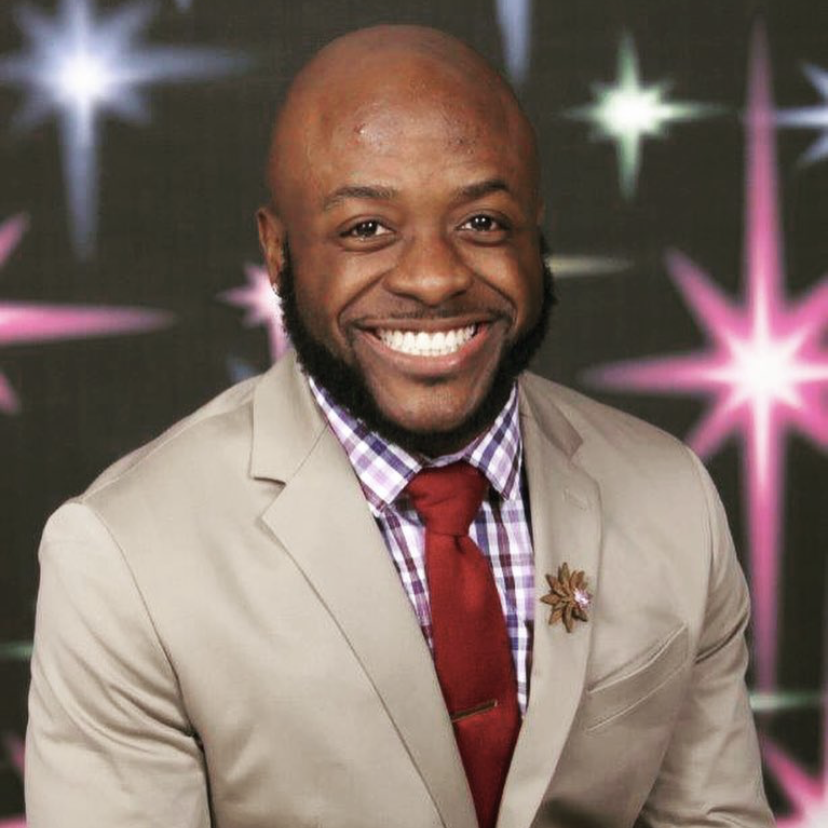
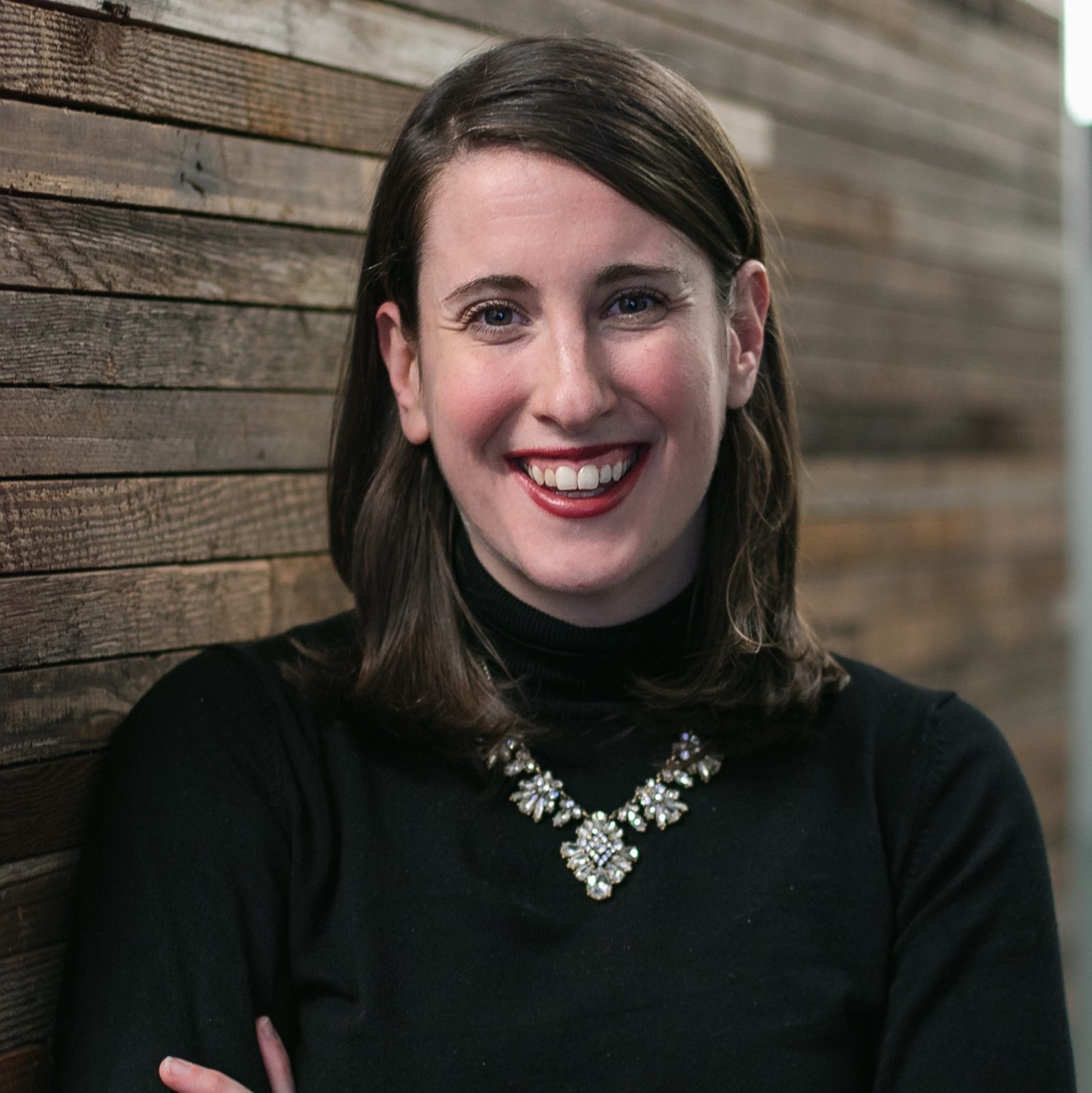
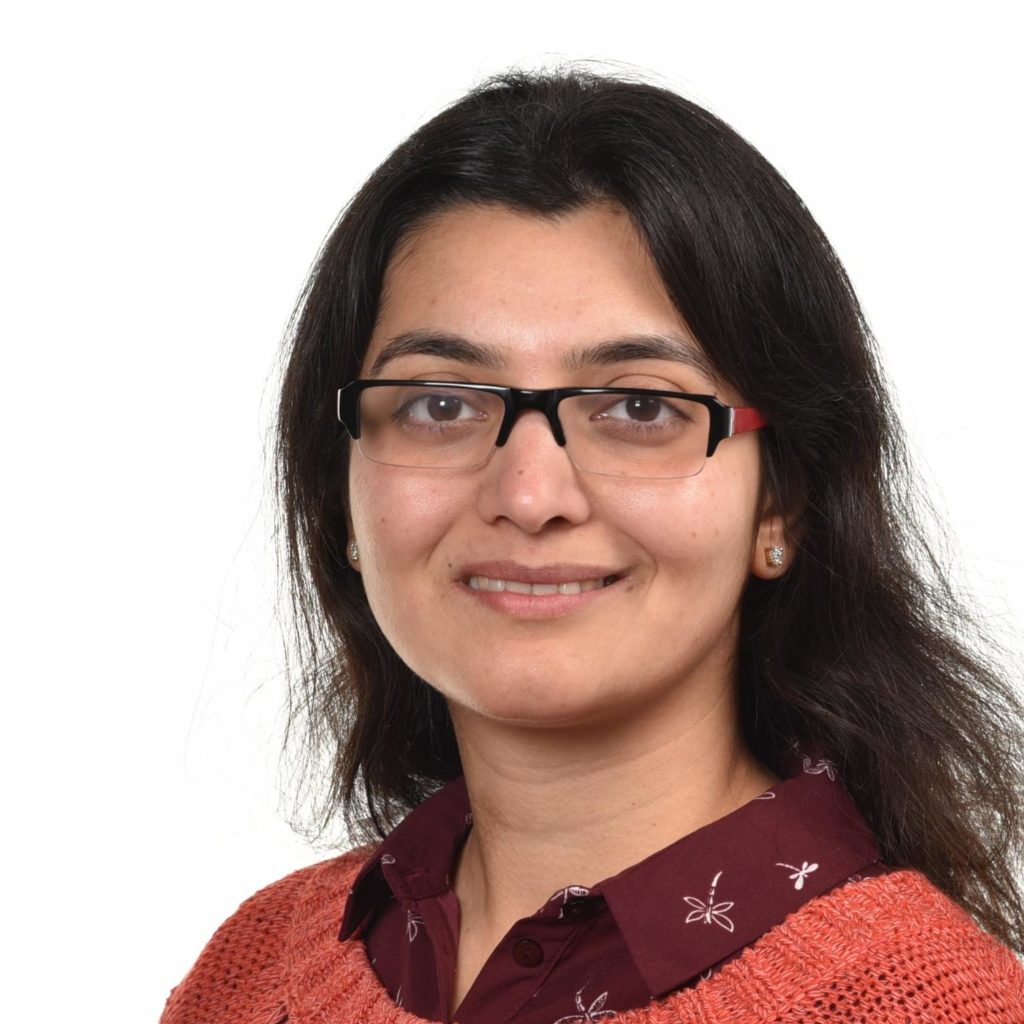
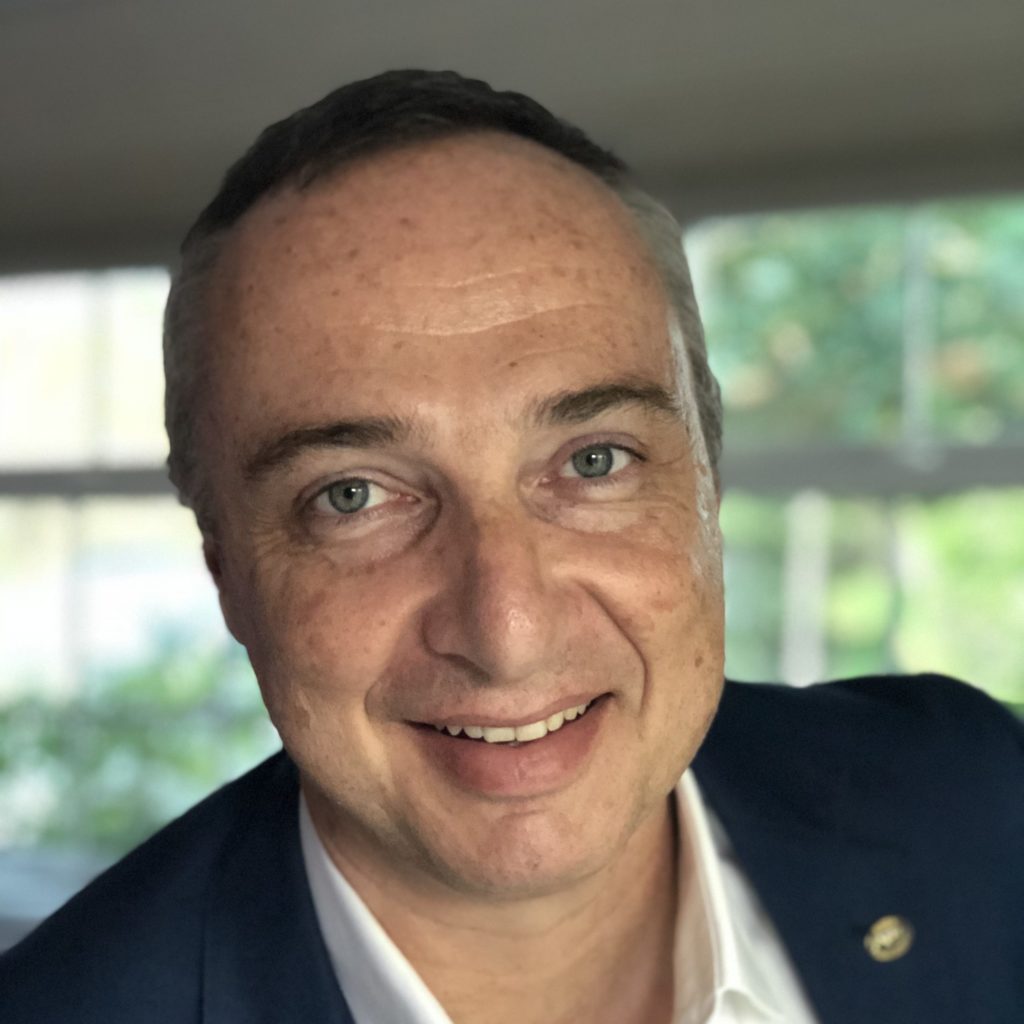
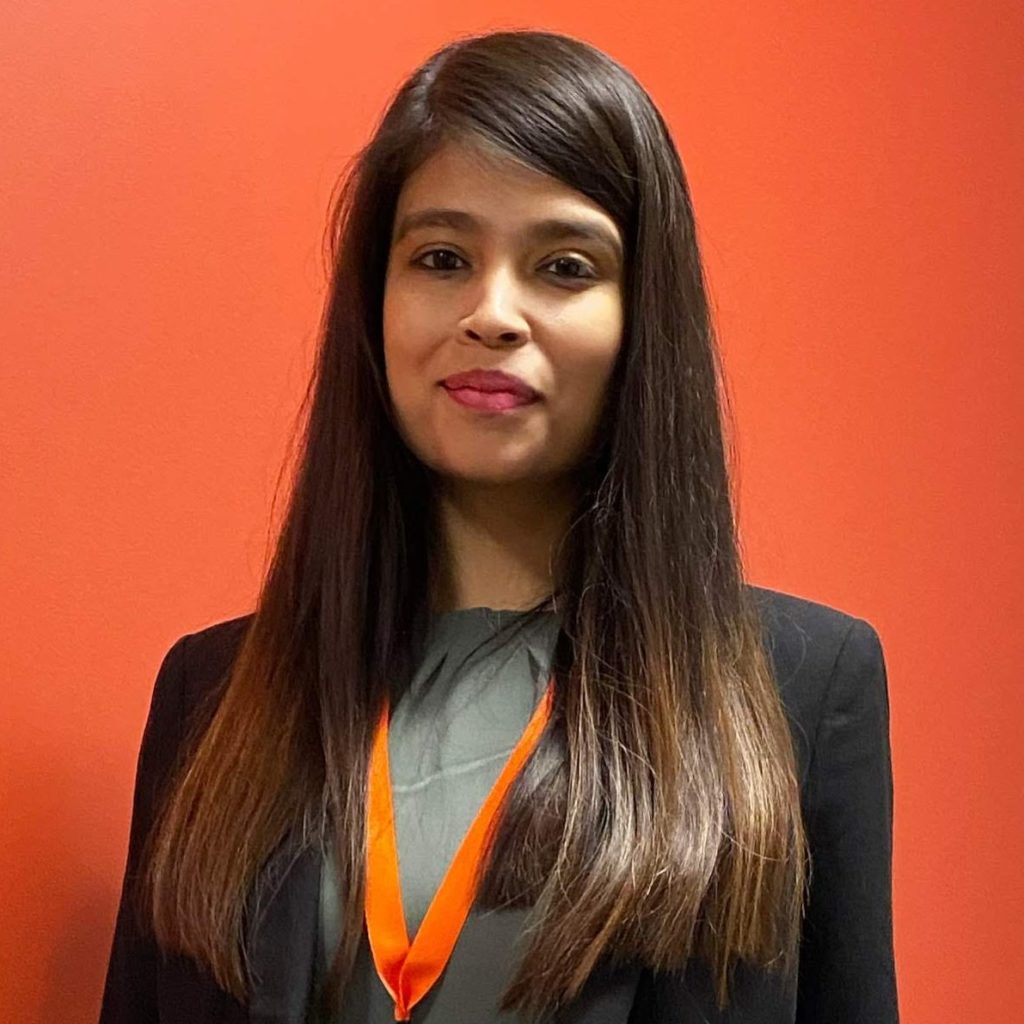

Victor Aimi (MS ’21, Corporate & Organizational Communication), Emily Bauer (EdD ’21, Higher Education Administration), Rhea (MPS ’21, Analytics), Joel Livingston (EdD ’21, Education), and Shreshthi Mehta (MS ’21, Leadership) won Focus Awards, while Kelsey Kaul (EdD ’22, Education) received a Category Award in Social Sciences, Business, and Law.
“The RISE Award means that others believe in the work I have done,” Livingston said. “I have always been someone who is self-motivated, but knowing that others see the significance of my research inspires me.”
Inclusive Engagement
Livingston was honored with the Graduate Innovator Award for “Restorative Justice Challenges and Culturally Responsive Classrooms to Improve Engagement.”
“Culturally responsive teachers create classroom environments that utilize symbolic curriculum to highlight beliefs and values related to cultural diversity and ensure that the images portrayed reflect positive aspects of multiculturalism,” Livingston said, describing his research. “Even more, culturally responsive classrooms can assist in keeping students of color engaged in class, which in return can influence positive behavior. In addition to culturally responsive classrooms, the implementation of restorative justice practices is recommended to maintain positive behavior. In many schools across the United States, restorative justice practices have been used as an alternative to suspensions, expulsions, and other exclusionary disciplinary practices. This inequality can prevent students of color from succeeding throughout their educational trajectory, leading them to misbehave more in school and the school-to-prison pipeline, which will ultimately prevent them from being successful and unlocking their full potential.”
The study for which he was recognized, he said, was designed “to ensure that restorative justice is more than just a buzzword in education.”
Diversity in Tech
In her project, “Reforming the Referral Process: Increasing Diversity for Tech Startups,” Kaul sought to address equity in the workplace.
“My research is rooted in understanding how to improve the diversity of technology teams at startups,” Kaul said. “This work is important because the technology sector impacts each of us, every day. Although the tech sector creates products for everyone, the teams that do this work are often not representative of the users they serve. The tech sector needs to increase its diversity to create better products.”
Kaul examined ways in which such companies can improve their diversity, focusing on how to ensure that referrals can diversify the pool of job candidates.
“This work is especially important to me because of my focus on ensuring the success of women and minorities in STEM,” she said. “At Northeastern I work with master’s in engineering students who are the future of the technology sector. My program is over 50% female, which is unique in this sector. In my role, I help these students prepare for their future careers in tech, but I often ask myself, where are they headed? Is the industry ready to support them? That is what led me towards this research.”
Improving Access
Supporting the success of women is at the heart of the work of Shreshthi Mehta. In “Exploring the Challenges of Employing Women as Porters in Cusco, Peru,”Mehta studied the cultural and demographic barriers preventing women from working as porters on the popular tourist trek to the Incan citadel of Machu Picchu. Her research revealed how measures to ease women’s access to such coveted jobs have proved profitable.
“Women of many cultures face several stereotypes, where they are prohibited from pursuing certain jobs or careers,” Mehta said. “The story of women porters in Cusco and their pursuit to work in a severely male dominated profession is revolutionary. It showcases the DEI [diversity, equity, and inclusion] initiatives of the owners of Evolution Treks in how diversity has proven to be beneficial to the tour company, in spite of the higher operational costs of employing women porters.”
Cross-Cultural Communications
Victor Aimi’s identity as an immigrant, he said, informed “Cultural Challenges of International Websites,” in which the native Argentine “set out to study why websites sometimes seem to have a mind of their own when accessed overseas.” In the course of his work, Aimi found that web technology is just one dimension in the more complex problem of making the web work well across borders.
“This is fascinating to me,” Aimi said, “because websites are a central part of any communications effort with international audiences, yet I did not often think of the cultural dimensions enabled by the web before this project. My habit was to just to rely on the technology.”
Receiving a RISE Award, Aimi said, illuminated his own identity in a way he hadn’t expected.
“As an immigrant I often experience cultural differences as a burden,” he said. “The award made me realize that cultural awareness can also be an advantage. I’m truly grateful to Professor Patty Goodman for helping me figure that out.”
Improving Efficiency
Rhea — who, like Aimi, is an international student—rooted her research in resource optimization, using her project, “Predicting Memory Utilization on High Performance Computing Cluster,” as an opportunity to help hone the efficiency of Northeastern’s research computer network.
“Northeastern made it easy for me to settle down in the culture,” the Analytics graduate said of emigrating to Boston from her native India. “At the very beginning of my experience, I was offered a part-time job at Northeastern, in Research Computing. I felt ecstatic and I couldn’t wait to apply all the knowledge into practice as I learned. I had a chance to learn from the best professors at CPS. This project was my chance to use my knowledge to create something for my university.”
By analyzing the way Northeastern’s high-performance computing cluster utilized memory, she developed a data analytics framework and a machine learning model that makes the cluster more efficient—and more easily accessible to researchers.
“I was lucky to have had this opportunity to learn from the best of my team here in the Research Computing department at Northeastern, and I can’t thank them enough for their constant support and motivation,” she said. “This experience has created a platform for me to move forward, and it has set a path for me to reach my career goals.”
Mental Health Literacy
Emily Bauer’s dissertation, “Mental Health Literacy in Student Affairs Graduate Preparation Programs,” focused on training non-clinical college and university student-affairs staff in identifying and intervening in emerging mental health issues for students. Citing increasing student mental-health concerns—and observing that they are now coupled with the lingering effects of the Covid-19 pandemic—Bauer described her study as a pilot education program aimed at graduate students in student affairs master’s programs “to enhance skills and confidence in the area of mental health literacy.”
Like many of her colleagues, Bauer’s research was inspired by direct experience in which she discerned a broader challenge.
“I chose the framework of mental health literacy based on my perspective as a mental health first aid instructor,” she said, “which has shown me that anyone can support and help others experiencing mental health concerns. I would like to empower those in my field to do this and take action to support students on college campuses.”
Livingston noted that his work, too, was rooted in personal experience.
“Restorative justice in schools is important to me because as a student in New York City public schools, I had several teachers who misinterpreted my lack of focus as defiance,” he said. “As a teacher/school administrator, I see many students experiencing the same issues I had. I am now in a position where I can change this narrative, and that is what I intend to do.”
Northeastern CPS Program Named to PRNEWS’ “2021 Education A-List”
PRNEWS, a highly-respected information source for corporate public relations (PR) departments and agencies for more than 75 years, has named Northeastern University to its inaugural “Education A-List.” The A-List is “designed to spotlight the top 35 educational institutions advancing the careers of PR and communication professionals in the U.S.”
The honor is a welcome professional recognition for Northeastern’s Master of Science in Corporate and Organizational Communication program, according to Ed Powers, the faculty lead for the public and media relations concentration.
“We have offered the degree program since 2015 and public and media relations is the most popular concentration in the program,” said Powers. “We’ve been steadily building it out, year after year.”
Part of that process has been an effort to make the Northeastern program more directly applicable to the full work lifecycle of PR departments and agencies. Ed Powers has a deep understanding of that lifecycle, having worked for more than 25 years in corporate PR and communications before joining Northeastern over a decade ago.
“For the past three years, we’ve been working on a concept we call ‘the virtual public relations firm,’” said Powers. In keeping with Northeastern’s emphasis on experiential learning, students in the program have long worked in PR internships as part of their degree program. The virtual PR firm, however, takes that concept one step further.
“We were discovering that oftentimes, an internship for an individual class was too short a period of time,” explained Powers. “Just as students were ramping up and getting to know an organization they were working for, it would be time to finish up and move on to the next class.”
“One of the distinguishing features of the virtual PR firm is that we offer four courses in a row – taking students from research to strategy to two content courses,” he said. “This matches the process that PR agencies go through. The beauty of it is, as they’re learning concepts in each of those four courses, they’re actually trying them out in developing materials for their clients – and it’s the same client for the entire set of four courses.”
This year’s public and media relations students are working for four clients. One of them, Akvo, is a nonprofit organization offering big data analytics services for sustainable development projects. Three Northeastern student teams are working on op-ed opportunities, social media campaigns, and a direct mail project for the organization.
Ed Powers is pleased to see Northeastern’s innovative approach to PR studies is getting noticed by professionals in the field.
“PRNEWS is a respected source in the industry,” he noted. “We’re pleased to be on this list and be seen as one of the leading universities in the country when it comes to developing the next generation of public relations professionals. This provides yet another avenue for prospective students to learn what we’re offering.”
Finding a niche in the news business
PR professional and entrepreneur Victor Aimi brings the tools of journalism to bear on brand-building—even as he hones his digital skills at Northeastern.
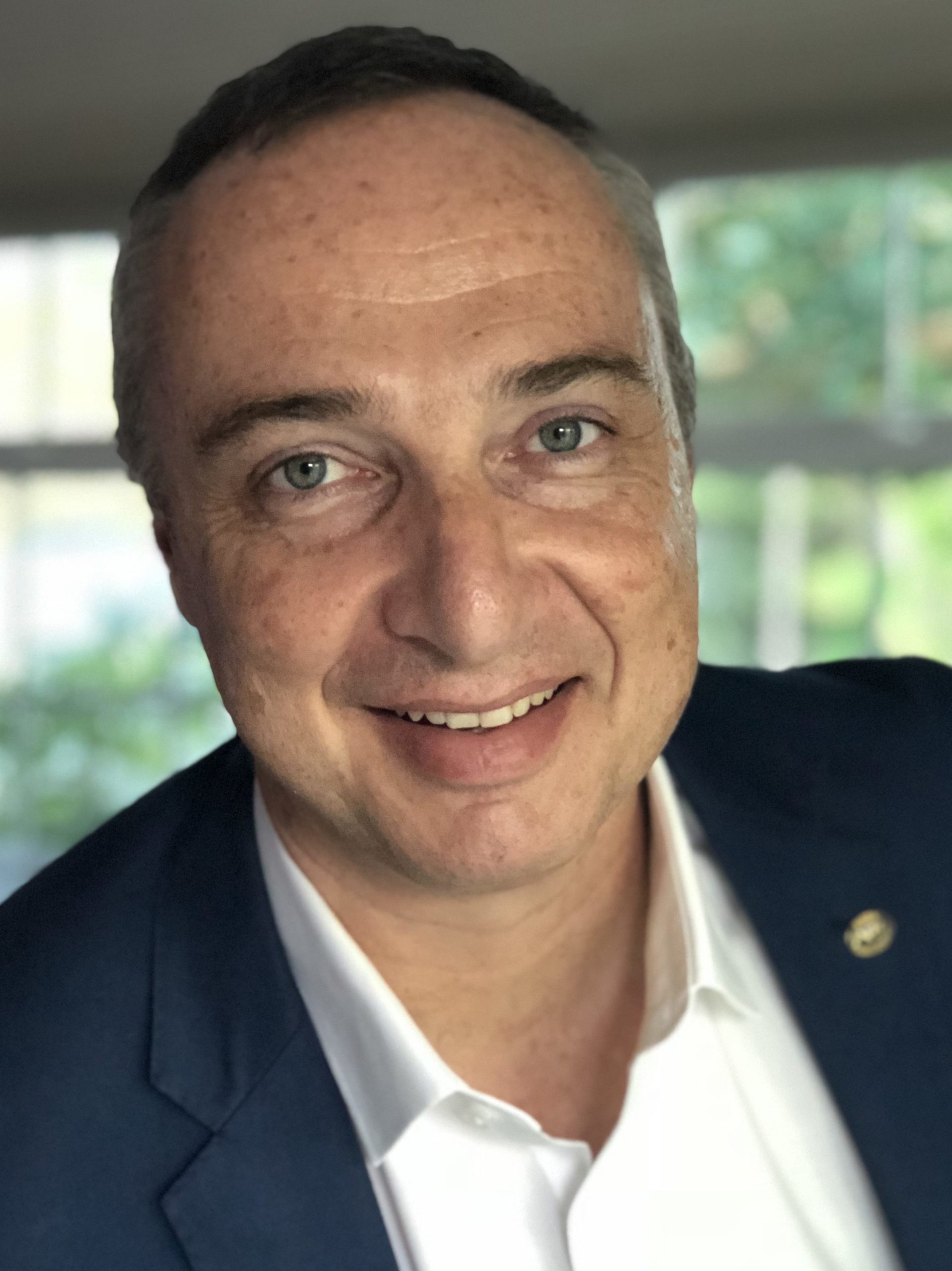
To illustrate the speed of the advertising industry’s shift from traditional to digital media, Victor Aimi (CPS ’22) refers to a line from Ernest Hemingway: “Like the famous quote about bankruptcy,” Aimi says, “it happened gradually, then all at once!”
In 2013, while working as director of public relations for Latin America at Microsoft, Aimi had a front-row seat as that shift accelerated. One day, while checking traffic on the tech giant’s in-house news site, he noticed that a top “referrer” the prior month had been the mobile version of Facebook. That meant a lot of people were linking to Microsoft’s site through an article it had posted on the social media platform. Not only that, but they were doing it from their phones.
“We’re thinking, what’s going on?” Aimi says. “What are these people doing on Facebook on their mobile phones? We were shocked by all this traffic coming from mobile.”
The surge in clicks was startling, and it gave Aimi an idea. Traditionally, companies’ PR departments have pitched story ideas to reporters assigned to an industry beat. An article about a new product or trend that appears in a trade journal or popular publication can draw attention, bolster a business’s credibility, and boost sales. But the activity Aimi was seeing suggested that a different model might be possible.
“The ‘aha’ moment was, oh wait, we have more traffic now on our own news site than some of the trade media we work with,” Aimi says. “If a reporter isn’t interested in writing about a particular topic, this could be an opportunity for us to just tell the story the way we want to tell it.”
Two years later, in a partnership that included several accomplished journalists, Aimi launched Verb Company, a business designed to capitalize on the opportunity he had recognized. By providing tech companies with deeply researched content that matters to their customers, Verb helps firms establish expertise and credibility. The company focuses primarily on the Latin American market, where the Spanish-speaking Aimi, a native Argentine, has years of professional expertise—and where some of his partners and employees have been working for years as reporters. Through customized news articles, intelligence reports and social media posts in English, Spanish and Portuguese, Verb helps clients position themselves as trusted resources and thought leaders.
The key, Aimi says, is to honor a long-venerated journalistic principle: accuracy.
“Customers have to know the information is true,” he says. “Everything marketing companies do has the goal of creating trust in prospective customers. If they are inaccurate, they get in trouble; they fail at the goal—or it results in a communications crisis. You know when you see some company on the news, in big trouble because they posted something silly online? It’s often really because nobody has thought in depth about what they were doing. That’s the value we provide.”
The company’s founding was timely in more ways than one. As advertising has moved online, traditional media such as newspapers have suffered, many have closed, and others have been forced to lay off workers. This has not only created a demand for trusted sources of information but has expanded the pool of talented, experienced journalists seeking employment. When one of Aimi’s founding partners, a onetime Wall Street Journal editor, reached out to former colleagues, he found several seasoned reporters with deep experience in Latin American markets available to work for the new venture. Soon they were onboard, producing articles, white papers, e-books, charts, art and social-media content to the highest journalistic standard for an array of customers.
“We run a newsroom, essentially,” Aimi says.
They also do most of it remotely, an approach—unusual when they started—that made their business resilient when the pandemic hit. In a recent blog post on Verb’s website, Aimi cites the unexpected benefit of having opted out of a traditional office-based work structure:
“Surely, we said [at the beginning], it would be better if we could all be in the same office. Right? Covid-19 answered that question with a resounding ‘no’.”
In 2017, with his company growing, Aimi attended a conference of the Public Relations Society of America (PRSA). It was there, he says, that he learned of Northeastern’s College of Professional Studies (CPS) from Associate Teaching Professor Carl Zangerl, the Faculty Director for Graduate Communication and Human Resources programs. In a break-out session for professionals who had earned a certificate of accreditation from the Society, Zangerl encouraged attendees to apply to CPS, mentioning that professional experience could count toward a degree. That piqued Aimi’s interest—both because it meant a saving on tuition and because it meant he wouldn’t have to take classes in topics where he already had extensive practical experience.
“Professor Zangerl said we wouldn’t have to study the things we already know, like communication strategy, which is what we do every day,” Aimi says. “So you can get right to stuff that’s of interest to you.”
For Aimi, some of those topics literally hadn’t been invented when he graduated with a degree in advertising from Argentina’s Universidad del Salvador in 1994.
“My final project as an undergraduate was on advertising in online systems,” Aimi says. “I wrote 60 pages. And I had one page in total on the internet. One page. Think about it. The internet existed, but no one used it. Everyone was using forums and things like that—and I didn’t think of Google myself, I’m sorry to say!”
Having already achieved success in online spaces, and with a business of his own to run, Aimi saw the online master’s in corporate communications as a perfect fit.
“For our profession,” Aimi says, “the change to digital can be a real boon. In corporate communications we’re in a great position to exploit digital, and to develop a digital practice, to a much larger extent than we are doing now. But we need to make the transition. And that takes a lot of courage.”
Zoe Cohen (CPS ’06), the founder of digital communications firm Everbrightly and a CPS lecturer in corporate communications who taught Aimi, agrees.
“Going back to school in the middle of your career is just different” she says.
Cohen sees Aimi as a good example of the kind of student who can benefit from the CPS program. “With years—maybe decades—under their belts, my mid-career students have a rock-solid foundation in communications,” she says. “But many are looking to update their skills. To learn new strategies, platforms and technologies—selectively. Not as a firehose, which it can feel like in digital communications, but in a thoughtful, relevant, career-focused manner.”
Not only did CPS count Victor’s professional experience as credit toward his degree, it also allowed him to study remotely, meaning he could keep building his company as he continued his education. In a parallel to the international collaborations he fosters in his business, Aimi worked for a semester from his office in Fort Lauderdale with two other CPS students, one in upstate New York and one in Nigeria, to analyze the social media presence of a New York artisanal ice cream chain.
“We were able to do the project entirely online,” Aimi says. “With one person in Lagos, one person in upstate New York, and one person in Florida. And we got a good grade!”
He also notes that the program at CPS has had immediate real-world benefits.
“That’s something else I like about Northeastern,” he says. “I thought it was going to be less focused on the practical side, more theoretical. But no, it has been extremely useful.”
While Aimi is among those for whom earning a master’s through CPS has supplemented a thriving career, Cohen points out that CPS can also be a key for less-experienced professionals to unlock success.
“Many mid-career students are looking for a master’s degree credential from a highly ranked school,” she notes. “According to the census, 13.1 percent of U.S. adults have an advanced degree, up from 8.6 percent in 2000. For mid-career professionals looking to advance in their field or jump into a new job, a master’s degree can be the difference.”
Meanwhile, Aimi continues to discover overlaps between his academic work and his professional life.
“One of the assignments in Professor Cohen’s class,” he says, “was to write blog posts. I had never written a blog post following guidelines on how to write a good blog post. And it was great! I realized that the end result was a much better post than I had ever written before. I’m presenting a project this year for the PRSA, and I’m using a lot of the material that I created in class with Professor Cohen. Those blog posts—I think the association is going to post them. I have to remember to send Professor Cohen the link when they go live.”
Virtual PR Firm Takes Experiential Learning to New Heights
Q and A with Ed Powers, Professor of Practice and Industry Pro
The MS in Corporate and Organizational Communication program has just launched a new Virtual Public Relations Firm.
Q: What’s it all about?
A: It’s the next level in experiential learning for our students. Our virtual firm looks and feels just like a small public relations agency. Through it we are integrating our public relations coursework with six-month projects covering six months for real-life clients. And the students will perform the client work using a leading marketing software tool. The purpose is to have students ready for PR jobs that are in demand in the marketplace.
Q: What’s new and different about the Virtual Public Relations Firm?
A: The student experience will be one of a kind. They will play the role of employees in the firm, working directly with the client to develop a public relations campaign. Their instructors will be their coaches, drawing from years of professional experience. They will learn how to use HubSpot, a marketing platform widely in use across many industries. We know of no other university that is doing this.
Q: How does the Virtual Public Relations Firm work? What are the details?
A: By enrolling in the core public relations courses, students automatically join the virtual firm. At the end of each course, the students present their work to the client, which then becomes the starting point for the next course. For example, the PR research report the students create this fall will form the basis for beginning work on the PR strategic plan in the winter. The courses start with Public Relations Research, which moves to Public Relations Strategy, which then leads to Public Relations Content and Advanced Public Relations Content.
Q: Who are the clients? Who will the students be performing their public relations work for?
A: Our first two clients are based on opposite coasts and have Northeastern connections. Neuron is a UX design firm based in San Francisco founded by two Northeastern graduates. The Biopharmaceutical Analysis Training Laboratory is a Northeastern center providing regulatory-related training to organizations globally to improve patient access to safe healthcare products.
Q: In addition to creating and executing an actual public relations campaign, can you describe how the Virtual Public Relations Firm provides students with real-world experience?
A: Students have been able to take courses online for some time, but now they will perform their work for a client remotely as well. This matches the increasingly virtual nature of today’s workplace. Also, the students are the face of the virtual firm to the client. That opportunity to build a relationship with a client is invaluable. In addition, unlike a traditional class, where the desired outcomes are well known from the start, the students must figure out what the client needs and then create it. That ability to deal with unknowns and ambiguity is exactly how real-world projects unfold.
Q: How else do you think the Virtual Public Relations Firm will benefit the students?
A: The biggest benefit is that students will have a concrete answer to the job interview question, “What experience do you have?” In the process, they will gain confidence in their abilities to perform public relations work that employers need. This includes both core public relations skills, such as preparing content and managing digital media, and soft skills essential for project success, such as collaborating with teammates and preparing persuasive presentations.
In this video, Ed Powers talks more in-depth about how this virtual experience will help students be more competitive in today’s job market.
Experiential Excellence Celebrated—Students and Employers Both See Benefit
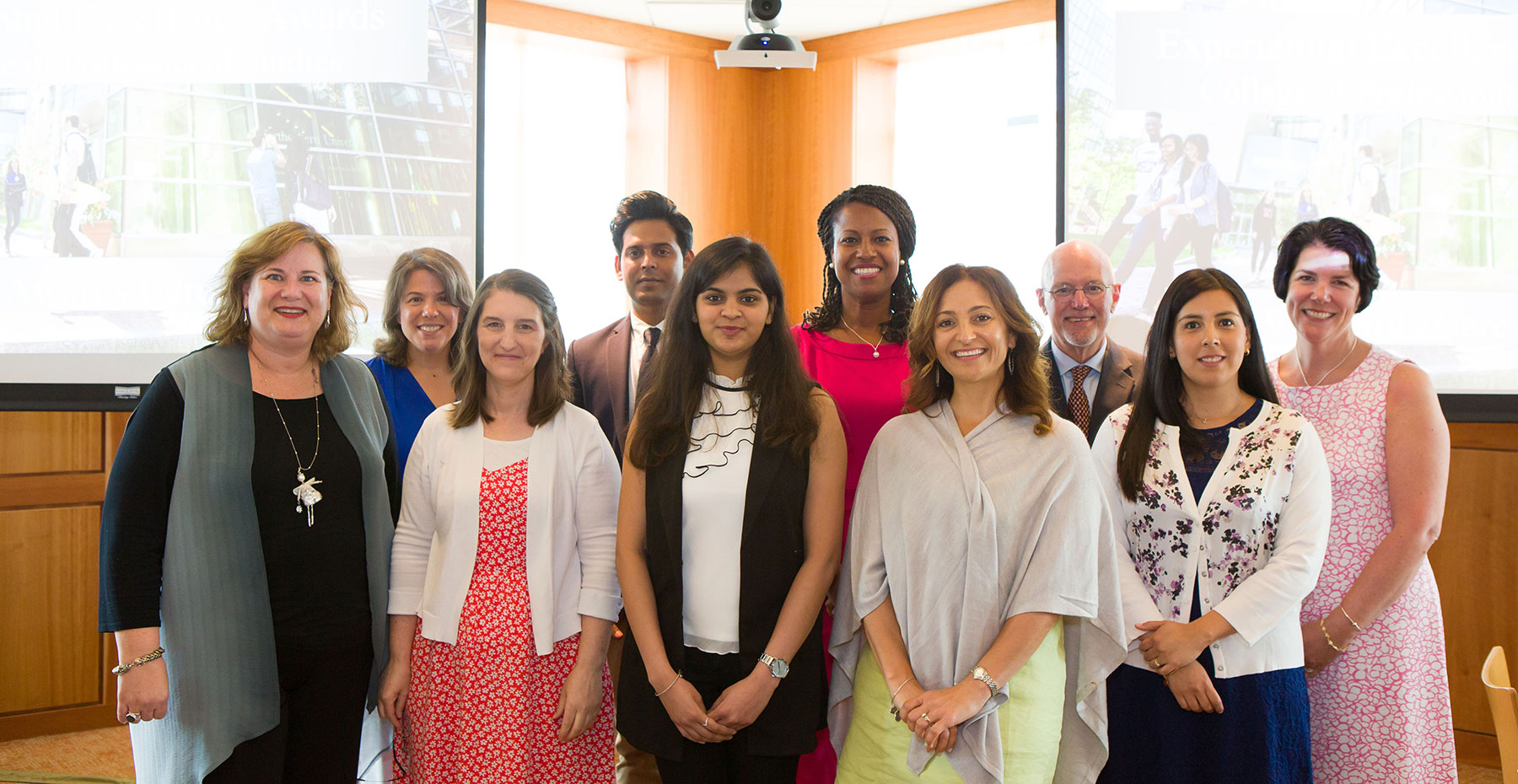
With experience-driven learning a cornerstone of a Northeastern education, the College of Professional Studies presented its annual Experiential Excellence award to 10 students in June. Students, and the employers and sponsors who supervised their work and nominated them for recognition, gathered with faculty and other academic leaders to celebrate the power of applied learning at the undergraduate and graduate levels. All student winners engaged in meaningful professional experience in the form of co-op positions (working full-time for an employer), a sponsored project in their course or capstone, or an experiential project at their current place of work. Students’ experiences were directly aligned with their academic work, complementing the body of knowledge in their chosen field with an industry-embedded perspective.
Notably, the Excellence award winners demonstrated outstanding commitment to the university partners they partnered with on experiential opportunity. These opportunities are broad and representative of the global reach Northeastern and its student benefit from. This year, the students’ work included planning and implementing a talent acquisition strategy for an education organization, strengthening digital engagement for an arts and advocacy organization, and creating and managing a quality assurance program in the regulatory affairs unit of a contract development and manufacturing organization, among other outstanding experiences. The common thread though all of the students’ work is their enthusiasm for their chosen industries and their demonstrated ability to connect their academic learning to practice in the workplace, ultimately producing incredibly valuable work for their sponsors and employers.
One award winner, Michel Jennings, is a spring 2019 graduate of the Master of Education in eLearning and Instructional design program. She traveled from Denver, where she attended the program as an online student, to participate in the awards ceremony and celebrate her new job in instructional design over lunch with Melissa Fristrom, leadership development consultant and CEO of Core Allies, Inc., Jennings’ project sponsor. In her project for Core Allies, Inc., Jennings turned a Career Transition Lesson Plan into a 10-class interactive course, essentially creating a new product and revenue stream for Core Allies. Fristrom praised Jennings’ strategic approach to the project: “She asked the right questions to help me be creative and innovative. She demonstrated a desire to understand what I was looking for as a business person.” Jennings notes that another ingredient to the success of the project was her own interest: “It helped that I was super-passionate about this topic.” Jennings said that the two reasons she chose the Northeastern Master of Education in eLearning and Instructional Design program were the opportunity to create an ePortfolio of her work, which she saw as critical to landing a good job upon graduating, and the opportunity to undertake an experiential project.
Indeed, Northeastern faculty and staff in attendance were moved by each award winner’s sentiment on the importance of experiential work alongside their academic curriculum; all students remarked on the lasting impact their experience has had on their professional skillset and career trajectory.
Following are the 2019 Experiential Excellence Award winners:
Mariella Hidalgo Del Alamo—Master of Science in Leadership
- Sponsor: Kathleen Egger, Learnwell
- Project: Talent Acquisition Strategy
- Award: Co-Curricular XN Award
- The project with LearnWell served to support the human resources unit with the primary function of growing talent acquisition with home instruction tutors. Del Alamo presented tangible quantitative and qualitative goals, one of which was to grow the number of teachers hired in 2019. Through the course of her Experiential Network project, she was successful in hiring 16 teachers and provided a deep dive analysis on recruitment engagement and best practices to attract talent.
Abhishek Jaiswal—Master of Professional Studies in Analytics
- Employer: Allison Ruda, Northeastern University as an Analytics Solutions Advisor
- Co-op Award
- Jaiswal designed a database architecture that not only supports—but fundamentally accelerates—Northeastern’s ability to make powerful connections between industry needs, learner goals, and academic content and experiences. Abhishek worked to understand the curriculum design principles and program development approaches, as well as the human and technological processes and systems needed to support them. He then brought this knowledge together with the technological and analytical skill sets he is honing in the Analytics program to develop a functional database prototype and Tableau visualizations.
Sanchi Jain—Master of Science in Regulatory Affairs of Drugs, Biologics and Devices
- Employer: Jeffery Pistor, Paragon Bio Services Inc. as a Quality Assurance Co-op
- Award: Co-op Award
- Jain created a quick search MS Access Database for Change Control records which improved employee efficiency by conserving 70% of their time consumed in finding paper records. Jain generated, analyzed and tracked the trends of raw material management process of the company, streamlined it and improved the process by 20% and digitized paper records. She conducted a 3-day Internal Audit of Facilities and Engineering department and drafted an Audit Report.
Suwarna Kale, Weipeng Zhang, Yiyi Zhang, Jaspreet Kaur Sawhney—Master of Professional Studies in Informatics
- Sponsor: Sebastien Mannai, ADS
- Project: Cloud Development
- Award: XN in Curricular Group
- Each of the students contributed their unique skills to help the company develop advanced and comprehensive IT solutions, including AWS Cloud infrastructure architecting, Internet of Things device set-up, data storage and management, data streaming, analytics, and visualization (dashboard). Each of them worked on different perspective of the project (Weipeng even applied his earlier computer hardware training), but jointly they delivered a project that represents the cutting-edge IT applications.
Amanda Nolan—Bachelor of Science in Health Management
- Sponsor: Dedham Medical Associates
- Project (self-developed): Improve Health Information Management/Electronic Health Record System to improve overall efficiency
- Award: XN at Work
- Nolan scheduled meetings with numerous individuals in different departments to learn more about some of the challenges others faced when entering and accessing information in the electronic health record (EHR). Nolan not only identified challenges to the timely entry of vital medical information into the EHR, but also valued the ripple effect it had on the provider/patient relationship.
Molly Chase—Master of Science in Corporate and Organizational Communication
- Sponsor: Andy Short- Improbable Players
- Project: Digital Marketing Strategy
- Award: XN in Curricular- CMN 6940 Projects for Professionals
- Chase developed a set of recommendations for this innovative nonprofit which wanted to leverage its digital outreach more effectively. Her project addressed three key components of a digital strategy. The first component was to improve the web content by effectively and creatively telling the stories of actors, in an effort to attach relatability and empathy, and by better showcasing what Improbable Players does. The second component was to increase audience awareness of Improbable Players through various social media outlets and content. The third component was to experiment and take controlled risks with e-mail marketing in order to engage the donors and prospective partners who are on the current mailing list. Her final report to the client was exceptional in terms of depth of research, creativity, and practicality of the implementation steps. She fully incorporated the consultative process that is embedded in the capstone course and developed a strong relationship with the sponsor.
For more information on experiential learning opportunities, please visit: https://cps.northeastern.edu/experiential-learning.
Human Resources Professionals Offered NU Graduate Credit
In recognition of the rigorous program of study required to earn human resources certifications from the Society for Human Resource Management (SHRM), Northeastern University College of Professional Studies will offer students who have earned the SHRM-CP and SHRM-SCP certifications the equivalent of up to two courses of academic credit (6 quarter hours) toward a Master of Science in Corporate and Organizational Communication or a Master in Leadership and 3 quarter hours toward a Graduate Certificate in Human Resources Management.
“As a program for working professionals in the human resources field, we recognize the powerful combination of skills earned in the workplace and knowledge acquired through professional development programs such as those offered by SHRM,” said Carl Zangerl, PhD, faculty director, graduate communication and human resource management programs. “The SHRM certifications align with our Human Resource Management curriculum because they both emphasize the application of theory to practice and recognize the importance of lifelong learning in a rapidly changing field. Our shared aim is to equip human resource professionals with expertise that crosses industries and borders.”
Society for Human Resource Management Certifications
SHRM has created a rigorous, relevant and competency-based learning process that culminates in an examination that tests key areas of human resource knowledge, skills, and abilities.
“The SHRM-CP and SHRM-SCP certifications represent the global standard in competency-based credentials for HR and this initiative provides a great opportunity for Northeastern students to demonstrate their proficiency,” said Alexander Alonso, senior vice president of knowledge development and certification at SHRM.
Applying to Northeastern
Successful applicants to the Master’s program in Corporate and Organizational Communication or the Master’s program in Leadership, who hold either the SHRM-CP or SHRM-SCP certifications will enter with what is called “advanced standing.” The advanced standing transfer credit for the SHRM-CP is 3 quarter hours and for SHRM-SCP is 6 quarter hours, enabling students to complete an advanced degree in a shorter timeframe at an approximate overall tuition cost reduction of between 7% and 13%, depending on the certification. Applicants with SHRM certifications for the Graduate Certificate in Human Resources Management will receive 3 quarter hours of advanced standing transfer credit.
Northeastern University College of Professional Studies offers the Master of Science in Corporate and Organizational Communications and Master of Science in Leadership 100% online or on campus in Boston, Mass.. This provides flexibility for working professionals in a practice-oriented curriculum, taught by professionals in the field.
Northeastern University Grants Credits Toward Master’s Degree for Completion of Certified Professional Technical Communicator Certification
Society for Technical Communication Certification Program Approved for Transfer Credits

Northeastern University College of Professional Studies has approved four credit hours toward the Master of Science degree in Technical Communication for holders of the Certified Professional Technical Communicator (CPTC) Foundation level certification from the Society for Technical Communication. The nine core skill areas of technical communication covered in the CPTC exam map to the learning outcomes in the “Introduction to Technical and Professional Writing” course, a core class in the program’s curriculum. Certificate holders who decide to pursue their advanced degree at Northeastern will be able to achieve an 8% savings in tuition, as well as reduce the number of required courses from five to four.
“The CPTC Foundation level exam lets professional technical communicators demonstrate their mastery of foundation-level technical communication topics,” said Julia Cho, faculty member of the program. “Our industry-aligned curriculum has always been committed to the life-long learner, and we recognize the knowledge and skills that pursuing this certification represents. This certification aligns to our program’s learning outcomes for our students, in addition to showing dedication to the technical communication profession.”
“Having Northeastern University accept the CPTC certification for credit in their master’s program is exciting news for the technical communication community,” said Liz Pohland, CEO of the Society for Technical Communication. “Our goal is to increase the recognition and attraction of the technical communications profession. Attaining the CPTC certification is a great demonstration of a professional’s commitment to his or her career. We are delighted that Northeastern University has recognized the CPTC in this way.”
The CPTC certification is offered by trainers and training organizations who have been approved by the Society for Technical Communication and accredited by APMG International, a leading accreditation and certification organization. More information can be found on the degree program’s website as well as at the STC’s site.
About Northeastern University College of Professional Studies
The College of Professional Studies is one of nine colleges of Northeastern University, a nationally ranked private research university in Boston, MA. Founded in 1960, the College teaches undergraduate, master’s, and doctoral students on campus and online in more than 65 degree programs and is part of The Professional Advancement Network, a pioneering new model of education for working professionals who recognize the value of lifelong learning as a strategy for career development. More than 225,000 graduates make up the Northeastern Husky alumni network, in all 50 U.S. states and in nearly 150 countries.
About the Society for Technical Communication
The Society for Technical Communication is the world’s largest and oldest professional association dedicated to the advancement of the field of technical communication. The Society’s members span the field of the technical communication profession from students and academics to practitioners and managers. Our members represent every industry segment and many countries around the globe. The Society, its geographic chapters, and its special interest groups produce a wide array of educational events throughout the year designed to advance the knowledge of members and promote technical communication education, managerial techniques and tool skills. Career advancement is also supported by the STC through an annual salary survey, job board, mentoring and networking.
Public Relations Professionals Can Use APR Certification Toward Northeastern University Master’s Degree
Northeastern University College of Professional Studies is offering students who have successfully completed the Accreditation in Public Relations (APR) professional certification the equivalent of three courses of academic credit (9 quarter hours) toward a Master of Science in Corporate and Organizational Communication. This recognizes the rigorous program of study required to earn the APR, which is the industry credential for public relations professionals who demonstrate their understanding of and commitment to strategic communications principles through a multi-step review process based on established industry competencies.
“As a program for working professionals in the communications field, we recognize the powerful combination of skills earned in the workplace and knowledge acquired through professional credentialing programs such as the APR,” said Carl Zangerl, PhD, faculty director, graduate communication and human resource management programs. “The APR aligns with the Northeastern master’s program because it emphasizes the application of theory to practice and recognizes the importance of lifelong learning in a rapidly changing field.”
The communications competencies recognized in the APR map to the learning outcomes in three master’s-level courses.
Accreditation in Public Relations
Developed in 1964, the APR is governed and continually updated by the Universal Accreditation Board (UAB), which represents nine public relations organizations with more than 25,000 public relations professionals as members. In order to earn the APR, candidates present a comprehensive public relations plan to a panel of their peers, followed by a computer-based Examination that assesses understanding of a comprehensive set of industry knowledge, skills, and abilities.
“We are thrilled that Northeastern University understands the rigorous nature of the accreditation process and is recognizing that value in a meaningful way as part of meeting its master’s course requirements,” said Judy Katzel, APR, UAB 2017 Chair. “This is a real testament to the importance of lifelong learning.”
Applying to Northeastern
Successful applicants to the master’s program in Corporate and Organizational Communication who hold an APR or an APR+M will enter the degree program with “advanced standing” and will only need to complete 12 courses, instead of the 15 courses required of students without the APR. This advanced standing transfer credit enables public relations professionals with an APR to complete an advanced degree in a shorter timeframe and approximately 20% savings in tuition.
Northeastern University College of Professional Studies offers the Master of Science in Corporate and Organizational Communication 100% online or on campus in Boston, MA. This provides flexibility for working professionals in a practice-oriented curriculum, taught by professionals in the field.
About Northeastern University College of Professional Studies
The College of Professional Studies is one of nine colleges of Northeastern University, a nationally ranked private research university in Boston, MA. Founded in 1960, the College teaches undergraduate, master’s, and doctoral students on campus and online in more than 65 degree programs and is part of The Professional Advancement Network, a pioneering new model of education for working professionals who recognize the value of lifelong learning as a strategy for career development. More than 225,000 graduates make up the Northeastern Husky alumni network, in all 50 U.S. states and in nearly 150 countries.
About the Universal Accreditation Board
The Universal Accreditation Board coordinates all activities related to the Accredited in Public Relations certification. The UAB was established in 1998 by a coalition of public relations professional organizations, which currently includes: Asociación de Relacionistas Profesionales de Puerto Rico, California Association of Public Information Officials, Florida Public Relations Association, Maine Public Relations Council, National Association of Government Communicators, National School Public Relations Association, Public Relations Society of America, Religion Communicators Council and the Southern Public Relations Federation. For more information about the APR designation and UAB, visit www.praccreditation.org.